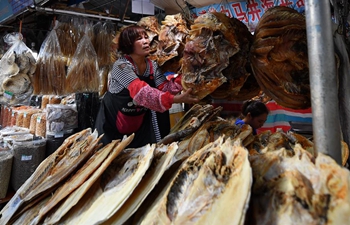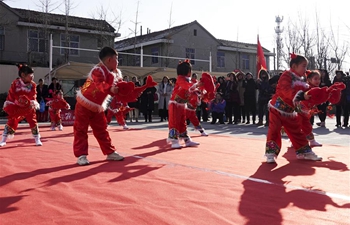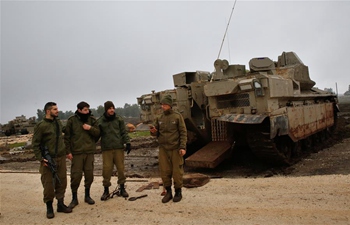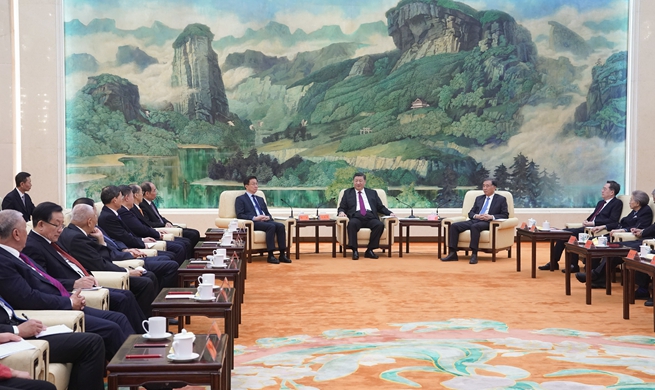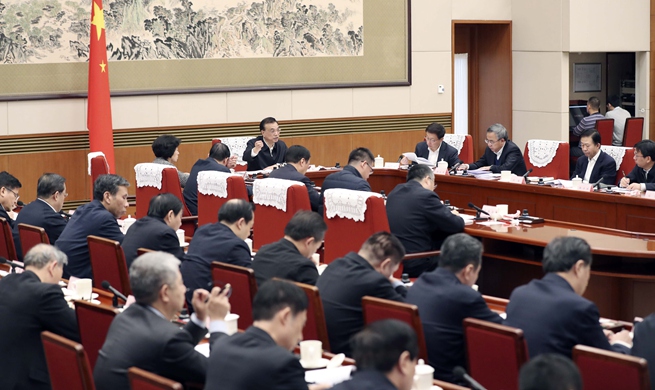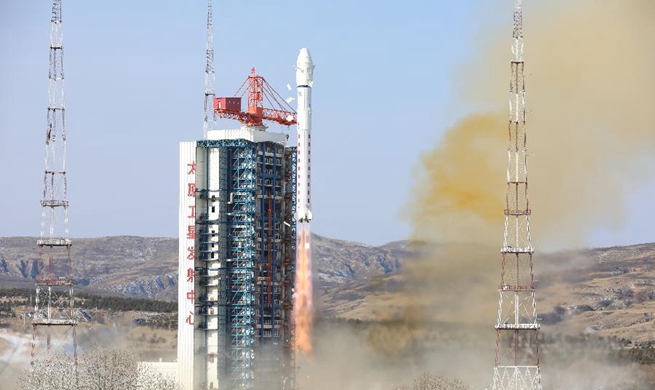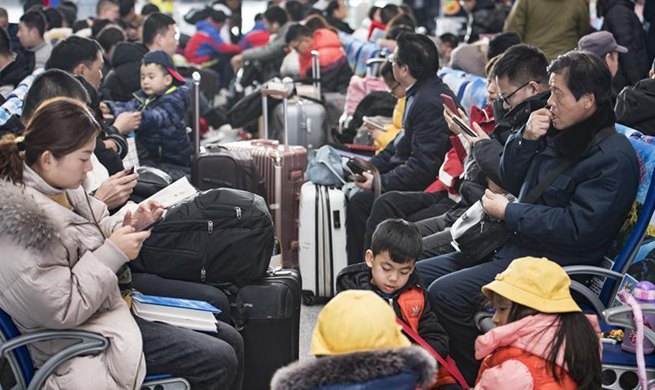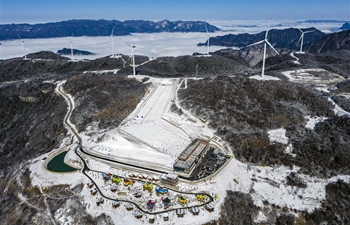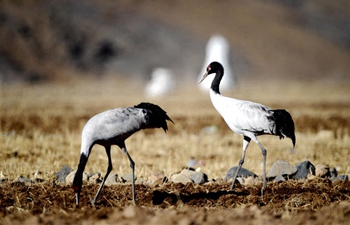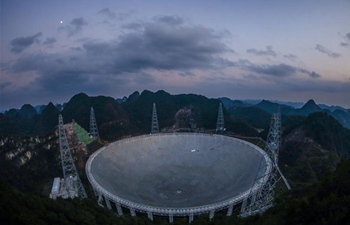by Alessandra Cardone
ROME, Jan. 15 (Xinhua) -- Several major cities in Italy struggling with persisting high levels of air pollutants introduced a partial ban on the movement of motor vehicles on Wednesday -- or toughened already implemented measures -- while a top researcher warned such restrictions would not be enough to solve the problem.
In Rome, northern Milan, Turin, and Genoa, as well as in central Florence and southern Naples, local authorities have decided to ban or restrict car traffic in city centers due to persisting high concentration of particulate matter (PM10) in the air.
Smaller cities in the northeastern Veneto region (such as Treviso and Vicenza) also followed suit.
In many cases, the partial ban especially targeted diesel motor vehicles, which are considered more polluting than others.
In Rome the diesel ban kicked off on Tuesday, and would be in place until Thursday at least, since PM10 levels above daily limits were registered between Jan. 1 and Jan. 12 by at least eight of the 13 survey stations across the city.
The survey station near Rome's eastern Tiburtina train station, for example, recorded exceeding levels for 10 consecutive days out of the 12 taken into consideration, according to the Regional Environmental Protection Agency (ARPA).
Turin will also keep the ban in place until Thursday at least, while the Milan city council decided to increase restrictions, after PM10 concentration limits were exceeded for seven out of eight consecutive days under monitoring.
Public Works and Mobility Councilor Marco Granelli said the city was experiencing "a smog emergency" and appealed to regional authorities to outline a strategy together with the city council.
The local branch of Legambiente -- Italy's largest environmental group -- urged Milan Mayor Giuseppe Sala in a letter to assess the city's current vehicle fleet in order to make anti-pollution measures more efficient, and to ban the "circulation of SUVs and all heavy vehicles of any engine type."
Also on Wednesday, a country's top researcher warned temporary car bans would not provide a real solution, having only "a limited impact and little effect, like all emergency measures."
"We have implemented such measures for some 20-30 years now, and very little has been done meanwhile to find meaningful and long-term solutions," Cinzia Perrino, director of the Institute of Atmospheric Pollution Research of the National Research Council (CNR), told La Repubblica daily in an interview.
The expert explained that car traffic was estimated to contribute some 25 percent to the PM10 concentration in the air on average.
"By prohibiting the circulation of diesel vehicles, we are therefore impacting on that 25 percent, and yet about half of the usual vehicles keep circulating (in a city) during the ban... so, we may say the ban would affect a little over 12 percent (of PM10)... It is a small, really negligible percentage," Perrino warned.
To boost the anti-pollution measures, she recommended stricter rules on the use of wood and fuel pellets for heating private households, and a careful study of the direct impact of climate change on the various cities.
"In terms of engine technology, I believe we have now reached the limit: Euro 5 engines and Euro 6 engines are very similar in terms of emissions... we will not go much further than that," the director said.
"It is good to keep looking for new solutions, but we will not be able to work miracles on the concentration of particulate matter... this is why we have to take measures and limit the kilometers traveled," she said.
Perrino recommended that authorities promote public transport more, and focus on sustainable technologies to find ways to prevent people from using cars to get around.
